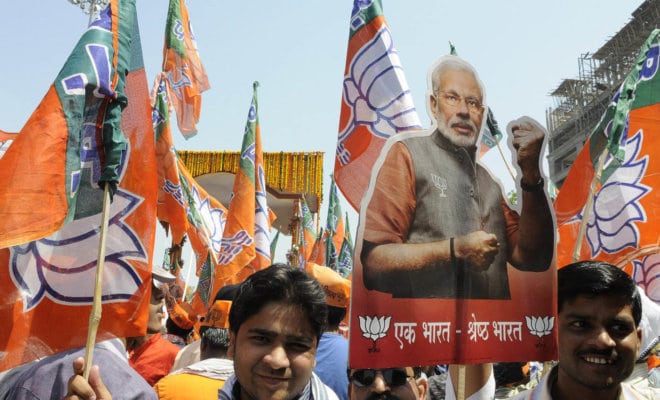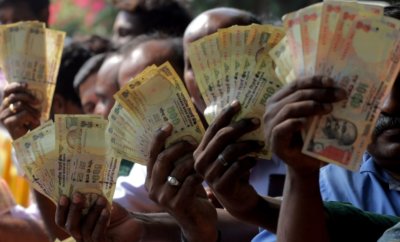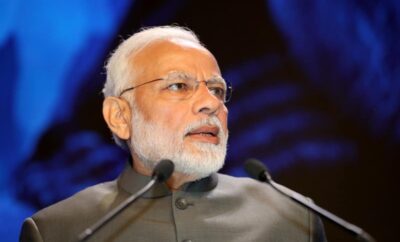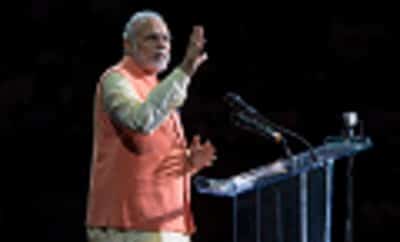India
Karnataka Elections See Fractured Verdict

Supporters of India's Bharatiya Janata Party.
Photo: Bigstock
The BJP won 104 of the 222 seats in which Karnataka Assembly elections were held while the Congress won 78 seats.
The positive performance displayed by India’s ruling Bharatiya Janata Party in the recently-held Karnataka Assembly elections has once again shown the effect that Prime Minister Narendra Modi holds over the electorate in the country. The BJP won 104 of the 222 seats for which elections were held on May 12 in the state, according to results declared on May 15. The Congress, the ruling party in the state, won 78 seats while the third largest party, the Janata Dal (Secular), got 38.
Though the BJP emerged as the single largest party, it fell slightly short of the 113 seats needed to form a government in the state on its own.
The results nevertheless serve as a huge boost of confidence for the BJP in the lead up to the general elections in 2019, especially after the scare it received during the Assembly elections in Modi’s home state of Gujarat where it won by a narrow margin last year, and the defeat it suffered in by-elections in Rajasthan and Madhya Pradesh. Most exit poll figures had, after all, predicted the party to remain confined well within a 90-seat mark in Karnataka.
The results on May 15, considered by many as a precursor to the general elections next year, are being seen as a sign that Modi’s stock of public goodwill remains undamaged in the country, despite incidents such as the Punjab National Bank scam and the Kathua rape case getting it widespread criticism. Modi had aggressively promoted his party in Karnataka, home to India’s Silicon Valley, Bengaluru, during the last leg of the campaigning. The state is not the party’s traditional base, although it was in power in Karnataka in 2008, and the recent results are being seen as a further consolidation of its pan-India strength.
Modi’s presence clearly did not let the taint of corruption charges against state BJP chief BS Yeddyurappa affect the voters’ minds about the party, which won only 40 seats in the last Karnataka Assembly elections held in 2013, as opposed to the 122 won by the Congress. The current tally of 104 seats is thus being taken as a clear thumbs-up to the prime minister’s leadership, despite the Opposition parties’ criticism of his moves such as the demonetization of high value currency notes, and implementation of the Goods and Services Tax (GST).
The Karnataka results are also being perceived as a sign of the waning influence of Congress President Rahul Gandhi, who had tried to counter the BJP’s campaign in the state with what his critics called a “soft Hindutva” campaign — he visited a series of temples, and large mutts or seminaries. The 41-year-old scion of the grand old party of India was said to be finally showing the confidence needed for him to come to his own as a leader, but the steps taken by him have obviously not proved enough.
The Karnataka state election was a “do or die” moment for the Congress heir, senior leaders of the party were quoted to have said, the Huffington Post reported. The results were to give a good idea whether Gandhi can lead a front that will be a viable alternative against the right-wing BJP in the 2019 general elections.
“If this election was fought on development then Congress will come to power. If this election was fought on anti-corruption then the Congress will come to power. If this election was fought on communalism then it is a challenge,” Madhu Goud Yakshi, a leader in charge of Congress campaign in Karnataka, was quoted by Huffington Post as saying earlier. “But let me tell you this, the silent majority even in the coast, does not like communalization. The BJP will learn that.”
The outgoing government’s Chief Minister, Siddaramaiah, tried populist measures too — offering a minority status to the Lingayats, a community that traditionally supports the BJP. They, however, stuck by the BJP, making Modi’s quip of reducing the Congress to PPP (Punjab, Puducherry, Parivar) come closer to reality in the run-up to the 2019 elections.
A huge part is said to have been played in this elections by WhatsApp, the Washington Post reported. The service is providing an unfiltered platform for fake news and religious hatred in India, the publication cited activists and observers as saying. Both the major Indian political parties — BJP and Congress — claimed that they each amassed over 20,000 WhatsApp groups, from where they could reach more than 1.5 million loyalists within minutes.
The messaging platform, which is reportedly being used to heighten tension between religious groups, is posing a great challenge to democratic elections, even as its parent company Facebook is bogged down by the Cambridge Analytica scandal. According to activists, it can be difficult to correct misinformation spreading between private groups.
“It is getting out of hand, and WhatsApp doesn’t know what to do about it,” Nikhil Pahwa, a digital rights activist, told the Washington Post. “The difficulty with WhatsApp is that it’s impossible to know how this information is spreading. It’s very easy for a political party to spread misinformation and no one can trace it back to them.”
The states of Rajasthan, Madhya Pradesh and Chhattisgarh — three states with the BJP in power currently — will be going to polls later this year, and their results would show how much the right-wing sentiment is still deciding votes in the country.




You must be logged in to post a comment Login